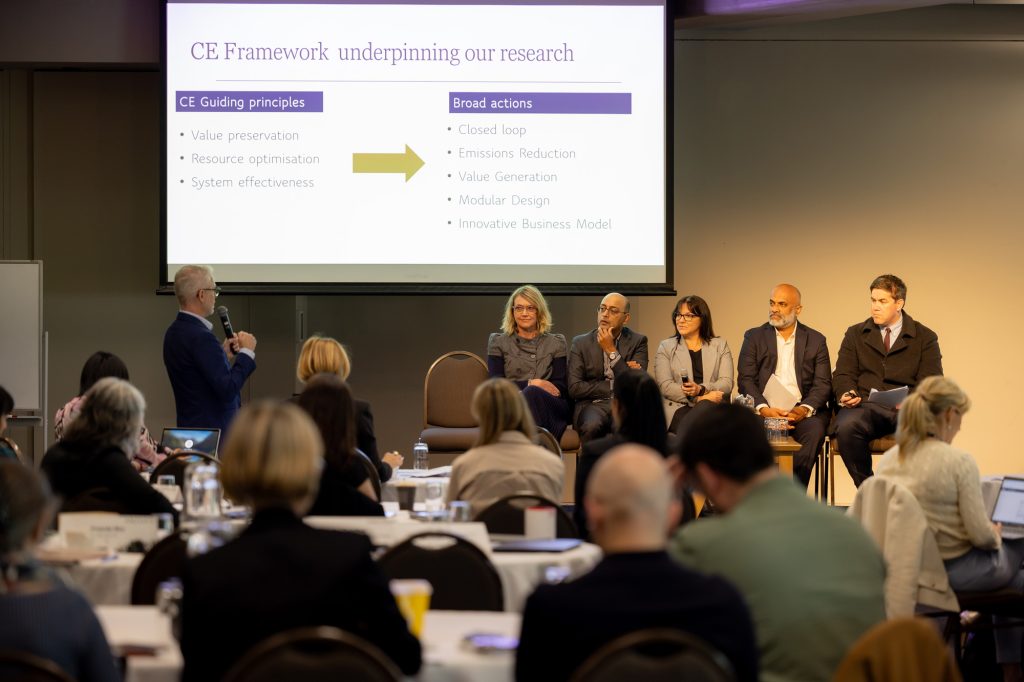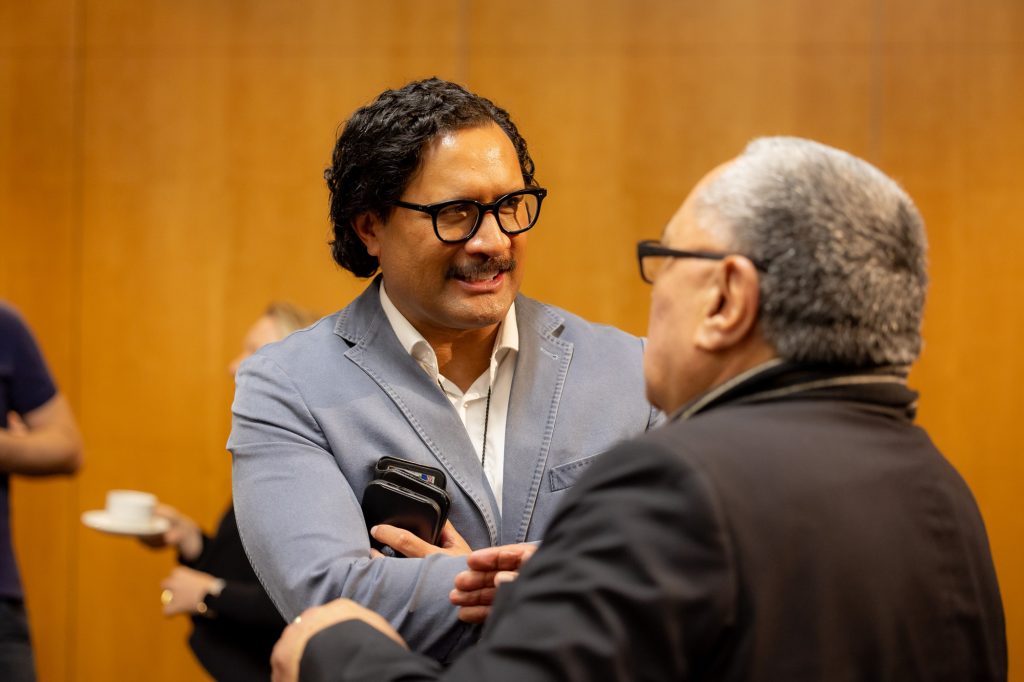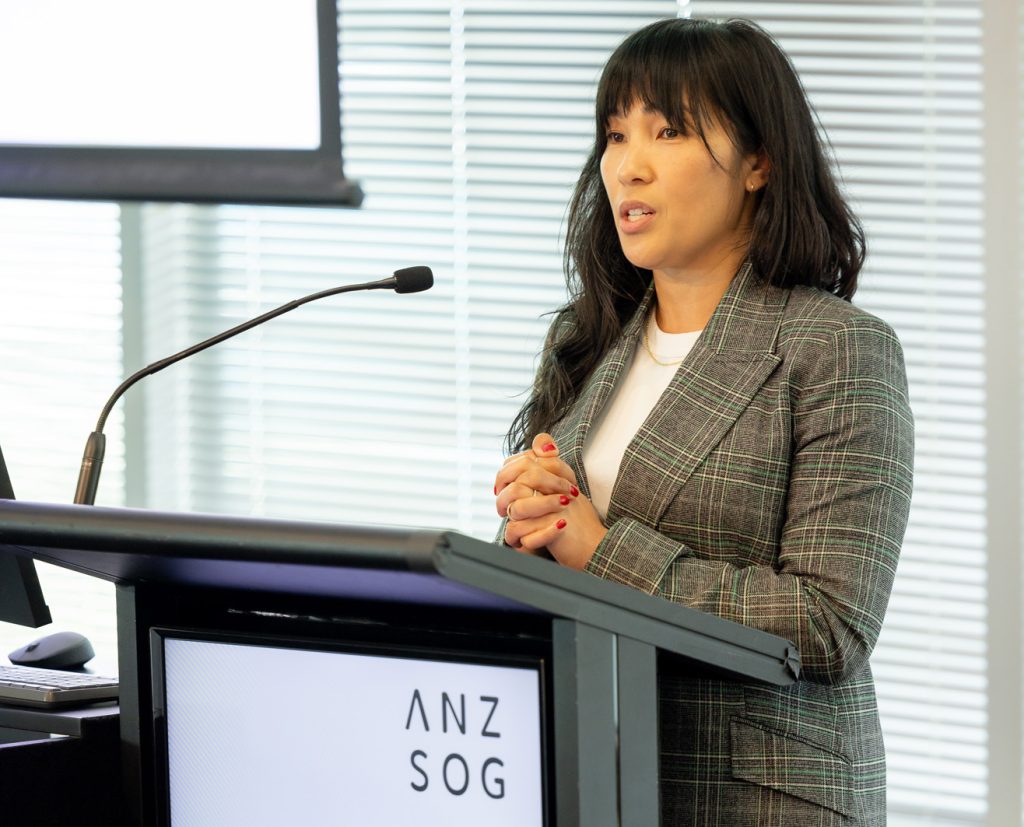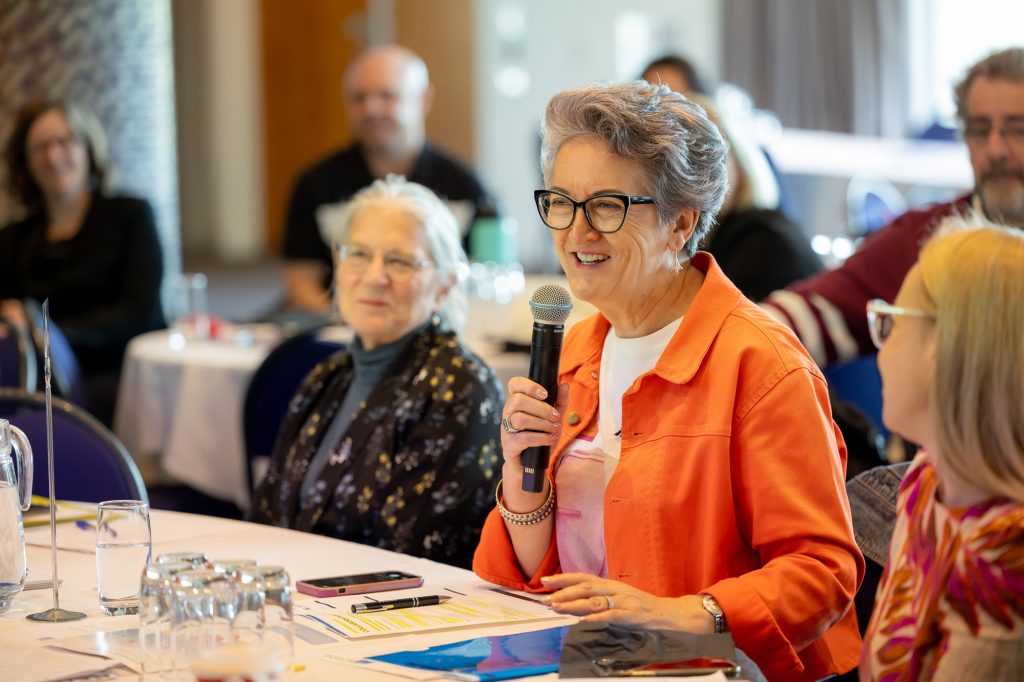ANZSOG Executive Master of Public Administration’s teaching and learning week in Wellington
28 November 2024
● News and media
ANZSOG’s Executive Master of Public Administration aims to take its high-achieving students out of their comfort zones and expose them to new ideas, and the challenges faced by other jurisdictions.
The program’s 2023 and 2024 cohorts recently visited Wellington/Te Whanganui-a-Tara in November 2024 for a week of teaching and learning.
EMPA Executive Director Dr Christopher Walker said the immersion had given students a deeper understanding of issues in Aotearoa New Zealand, and the chance to strengthen their bonds through presentation of the EMPA’s capstone Work Based Projects.
“With a recent change of government and debate about the future relations between the Crown and Māori, Aotearoa New Zealand has a huge range of issues with relevance to other jurisdictions,” he said.
“We want them to be stretched and better understand the broader public sector landscape, and the potential they have as public servants to improve the wellbeing of their communities.”

Students were welcomed to the Te Papa Tongarewa/ Museum of New Zealand with a mihi whakatau (Māori welcome) delivered by Peter Samuel Jackson and Trevor Moeke. The Museum setting itself helped to build understanding of Aotearoa New Zealand’s history, First Nations culture and a range of public administration challenges.
The week coincided with a hikoi – peaceful protest by Māori and their supporters – against the New Zealand Government’s Treaty Principles Bill, which aims to reinterpret the Principle of the Treaty of Waitangi.
While the Bill is almost certain not to be passed, opposition to it culminated in the 40,000-strong protest marching from Waitangi Park (near Te Papa) to the New Zealand Parliament on Tuesday 19 November. This peaceful protest highlighted New Zealand’s democratic tradition and the strength of Māori identity and culture in modern Aotearoa.
Frank sessions with top New Zealand public servants
A key part of the learning experience was the chance to have candid discussions with senior New Zealand public servants.
Students benefited from a session on Leading and Navigating Public Sector Change with – Gaye Searancke (Chief Executive, Land Information New Zealand) and Peter Mersi – (Commissioner and Chief Executive, Inland Revenue) – facilitated by ANZSOG Practice Fellow Sally Washington.
The session included discussion of issues around working with Aotearoa New Zealand’s new government, the importance of stewardship, and the value of New Zealand’s requirement for government agencies to produce Long-Term Insights Briefings outlining future challenges and issues.
Ms Searancke said that Chief Executives of public sector agencies, needed to think about how to move the agency so it was in a stronger place when they left it.
“It’s about ensuring that whatever we’re doing is built for today and that we are ready and able to deliver for tomorrow, whenever that tomorrow is. As public servants, it’s our obligation to think out 10, 20, 30 years about how we run our departments and build capability.
“The long-term insights briefings, introduced by the Public Service Act, provide a fantastic opportunity for the Public Service to use the data and facts that we have available to us to present issues in a way which can ensure there’s a quality conversation in the public.”
Mr Mersi said that public servants needed to provide frank and fearless advice that was framed within the political context, without becoming politicised.
“I think it’s innate in public service because we’re so worried about getting on the wrong side of the minister or the wrong side of the media. I think we actually have to be a little more aggressive on both of those fronts but do it in a way which is respectful. We have a duty to the citizens of our countries to ensure that we are delivering the best policy and the best services that we can – to our Minister, the government we serve and our communities,” he said.

Links between Māori culture, language and the economy
A session on Māori-Crown Relations: Responsiveness and Responsibility allowed students to deepen their understanding of the importance of Te Reo Māori (the Māori language) as a preserver of culture, and the reasons behind its increased use by New Zealand Government agencies.
Prof Rawinia Higgins, Deputy Vice Chancellor Māori, Te Heranga Waka Victoria University of Wellington said that language revitalisation was a vital part of preserving Māori identity.
“It takes one generation to lose a language, it takes three generations to restore it. So, it is a decision we make for our grandchildren so that what we do today benefits them,” she said.
“The opportunity to kind of consider what does a three-generation plan looks like is a bit of a challenge. If we want to strengthen the economy, we have to think about our education system and our health system and all the other systems that feed into a healthy economy,” she said.
“Policies that are designed for macro level, sometimes never filter down into communities and families, And the roles that we play inside our society, whether it’s, in my case, in the Crown Entity space and the academic space, is trying to find and navigate through that macro policy setting and trying to make it and apply it at a micro level.”
Trevor Moeke, Director Te Ao Māori Strategy and Performance at the New Zealand Treasury said that the median age of Māori people was 27, compared to 47 for other New Zealanders, and that this youth and restoration of language and culture would help drive the growth of the Māori economy into the future.
“Here we have emerging carriers of language, of knowledge, of knowing, of tradition not only the demography, but they’re about to start recreating new possibilities. They’re already producing and dreaming,” he said.
Mr Moeke said that public servants needed to take an authentic approach to working with First Nations and Māori communities, and to talk about ‘engaging, not consulting’ when it came to creating joint ventures.

Work Based Projects tie the EMPA together
The capstone subject of the EMPA is the Work Based Project, a group undertaking that sees students create of a piece of research on an issue nominated by a public sector agency. The research will influence the future direction of the agency, and students are required to use the skills they have learned throughout the EMPA.
As part of the Wellington experience, students presented their final projects to their EMPA colleagues and a panel of judges. They covered topics ranging from: social cohesion and the arts, disaster response and recovery in remote areas, integrity, and the use of Artificial Intelligence across government agencies.
Work Based Project academic adviser Dr Amanda Wolf said that the Work Based Projects helped students to recognise strengths and limitations they might not have realised they had.

“The Work Based Projects give them an authentic experience where they are learning from the process, and taking that learning back to their roles,” she said.
“These are individuals who’ve chosen to specialize in public sector work, which means that they need to be on top of dealing with complex, uncertain problems, and the Work-Based Project does that brilliantly.”
Dr Walker said that the week of teaching and learning had been a great finish to the EMPA for the 2023 cohort and a great introduction to Aotearoa New Zealand for the 2024 cohort.
“This has been another fantastic visit to Wellington, and a chance for students to get different perspectives on the way public sectors address contemporary challenges. ANZSOG’s experience and networks in Aotearoa New Zealand have again allowed us to build a rich learning experience for our students across the week,” he said.
